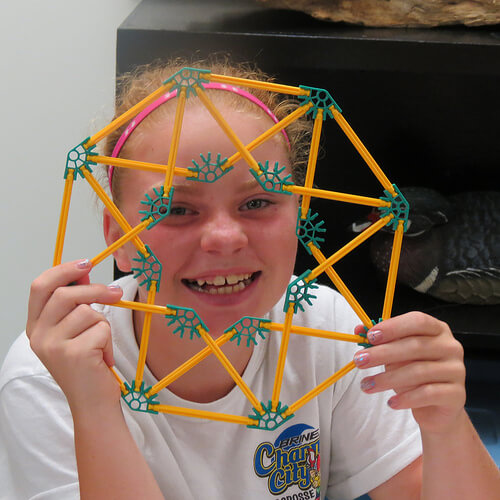If you are looking for some ideas for educational gifts for kids that are related to math and science here are some great gift ideas.
Educational gifts for kids that promote science learning
Science experiment kits are wonderful educational gifts for kids. Kids love seeing what will happen as they follow the instructions for an experiment. They might think a chemical reaction is magic at first, but as they learn about the science they will begin to understand why the science experiment has certain results. Scientific books about animals make great educational gifts for kids who love animals. There are science related books available for almost any subject area that kids could possibly be fascinated by.
Educational gifts for kids who want to be future engineers
Building sets that encourage kids to follow directions like LEGO sets and K’NEX building sets are fantastic educational gifts for kids who dream of becoming an engineer. Building model airplanes, racecars and trains are also wonderful ways for kids to develop fine motor and building skills.
Educational gifts for kids with math and science learning disabilities
If you know a child who has a learning disability you might want to find an educational gift that provides the proper support and is geared toward the right level. Talk to your child’s teacher, science tutor or math tutor to find out if they have any other recommendations that would make great educational gifts for kids with learning disabilities. There are some computer games like one program called Number Sense that uses fun games in order to help students develop basic math skills.
Finding educational gifts for kids who are gifted math and science leaners
Children who are gifted learners when it comes to learning math and science will be happy to receive an educational gift that will challenge them outside of what they are learning in school. Giving a gifted student a fun math puzzle, brainteaser or a science themed toy is a fun way for them to embrace their love for math and science.
Gift certificates for tutoring sessions
If you can’t decide on an educational gift for the students in your life you could always give them a special gift certificate for tutoring sessions. Tutoring can be beneficial for all students regardless of their abilities. Students can get the extra help they need from a math tutor or a science tutor or if they are gifted learners they can spend tutoring sessions exploring some exciting new subjects that interest them. If you are interested in giving a child a gift certificate for tutoring sessions you can contact School is Easy tutoring company at 1-877-ITS-EASY.


